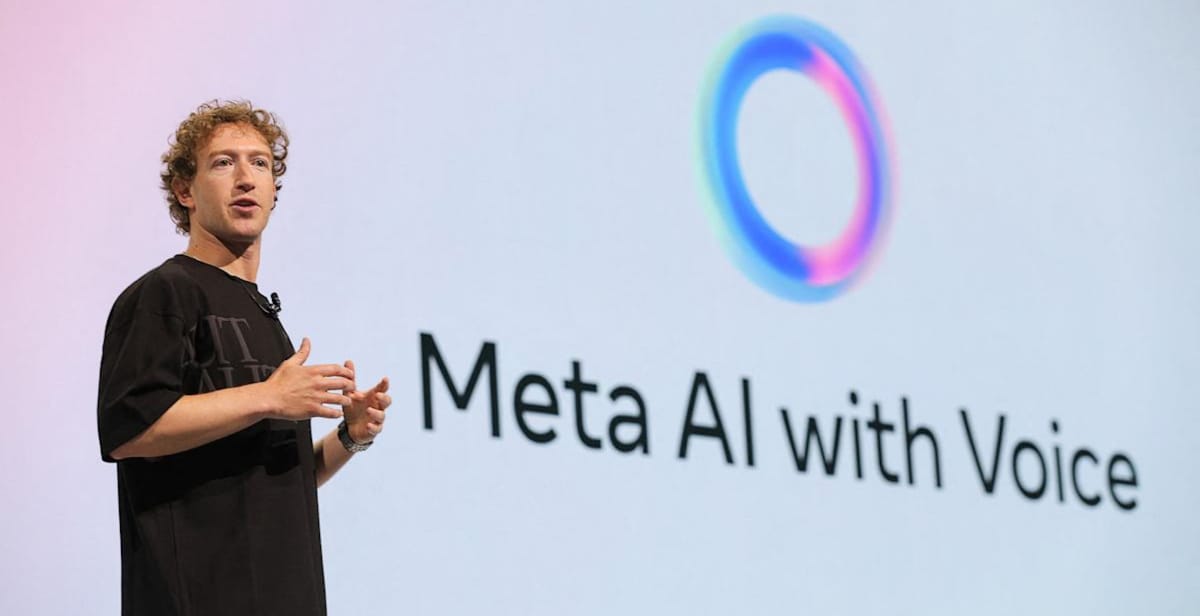Meta AI just hit 1 billion monthly active users (MAUs) across Facebook, Instagram, WhatsApp, and Messenger — a milestone that sounds massive until you remember this is Meta we're talking about.
Key Points:
- Meta AI doubled from 500 million to 1 billion monthly users since September 2024
- Zuckerberg plans to focus on growth before monetization
- A standalone Meta AI app launched in April, enhancing personalization and voice interactions.
"It may seem kind of funny that a billion monthly actives doesn't seem like it's at scale for us, but that's where we're at," Zuckerberg told shareholders at the company's annual meeting Wednesday. But here's the thing: getting people to use your AI is apparently way easier than figuring out how to make money from it.
Meta AI jumped from 500 million monthly users in September 2024 to over 1 billion now — that's Netflix-level growth happening in less than a year. The surge came after Meta replaced the search bars in Facebook, Instagram, WhatsApp, and Messenger with its AI chatbot in April, essentially forcing billions of people to encounter the assistant in their daily social media routines.
It's a classic Meta playbook: leverage your existing user base to bootstrap a new product. The company can differentiate itself from competitors like ChatGPT because it already knows who you are, what you like, and who you hang out with based on years of data from Facebook and Instagram. That personalization advantage helped drive adoption, especially after Meta launched a standalone app in April to compete directly with ChatGPT.
But while Meta's growth story sounds impressive, the competitive landscape tells a more nuanced tale. Gemini, Google's AI chatbot, has about 400 million MAUs, while ChatGPT is rapidly approaching 800 million weekly active users. It’s also unclear how many users actively seek out the assistant versus encountering it passively within Meta’s apps.
The real challenge for Meta isn't getting users — it's figuring out how they will ultimately contribute to the company's bottom line. Zuckerberg hinted at Meta's eventual monetization strategy, saying "there will be opportunities to either insert paid recommendations" or launch "a subscription service so that people can pay to use more compute". The sponsored recommendations route makes sense given Meta's advertising expertise, but subscription models are proving tricky across the industry.
Meta's advantage lies in integration and data, not necessarily superior technology. Zuckerberg said this year's focus is "making Meta AI the leading personal AI with an emphasis on personalization, voice conversations, and entertainment" — all areas where Meta's social graph and content ecosystem give it unique advantages.
The real test will come when Meta eventually has to start charging for premium features. The company has shown it can get people to use AI when it's free and seamlessly integrated. Whether those same users will pay for enhanced capabilities remains the billion-dollar question — literally.

